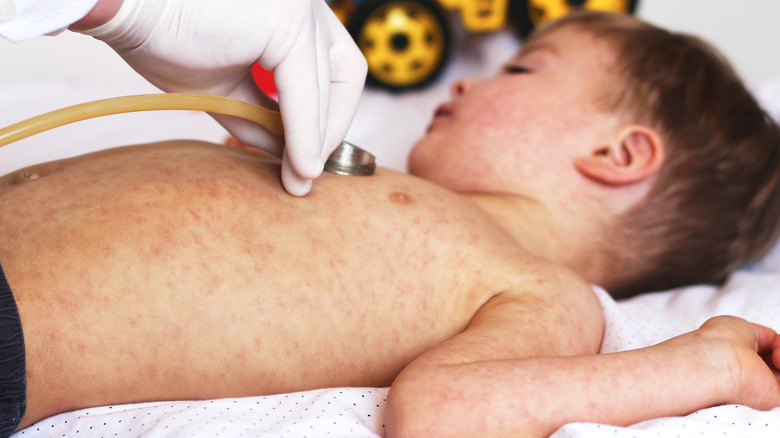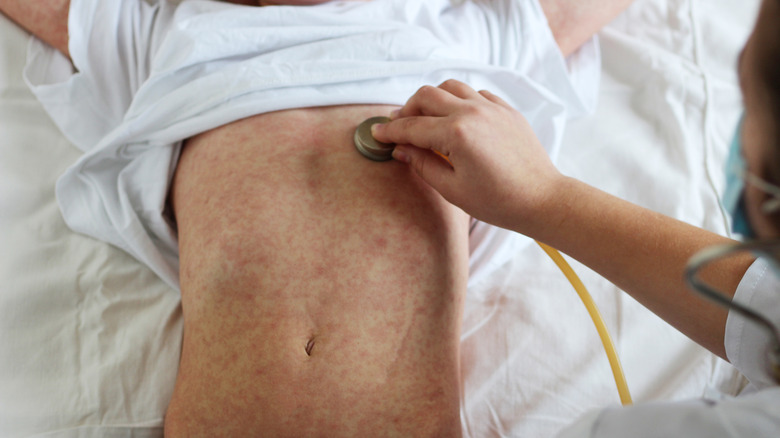Why The WHO Is Warning Of A Potential Measles Outbreak
Measles is an incredibly contagious viral infection that spreads through the air via coughing or sneezing, as well as being in close contact with someone who has it, per the Cleveland Clinic. Symptoms include a rash, cough, high fever, muscle aches, and a sore throat (via the Cleveland Clinic). According to the Centers for Disease Control and Prevention (CDC), children under the age of 5 who contract measles can develop severe symptoms that may result in hospitalization, pneumonia, and encephalitis.
While there is no cure for measles, symptoms can be eased with rest, fluids, and ibuprofen to help reduce fever and muscle pain (via the Cleveland Clinic). The best treatment for measles, however, is prevention. Fortunately, this is possible thanks to a vaccine series that typically begins when a child is around 12 months of age.
Although measles is entirely preventable, experts are warning of the potential for massive outbreaks on a global scale due to the fact that millions of children are not receiving their routine vaccinations.
Reasons behind the significant increase in measles cases
The beginning of 2022 saw an 80% increase in worldwide measles cases, according to the World Health Organization (WHO) and UNICEF (via ABC News). There are several reasons for this significant uptick in cases, including the fact that the COVID-19 pandemic created interruptions in routine vaccinations for millions of children around the world (via UNICEF).
UNICEF and WHO reported that this gap in childhood vaccine rates can also be attributed to the effects of the crisis and conflicts in areas, like Afghanistan and Ukraine, where millions are dealing with displacement and a general lack of basic necessities on a large scale (via UNICEF). It also highlighted the fact that because many people have resumed their activities of daily life as the COVID-19 pandemic winds down, this could potentially cause outbreaks in areas where there are continued delays in pediatric vaccination rates.
"Measles is more than a dangerous and potentially deadly disease," UNICEF executive director Catherine Russell said via a UNICEF press release. "It is also an early indication that there are gaps in our global immunization coverage, gaps vulnerable children cannot afford."


